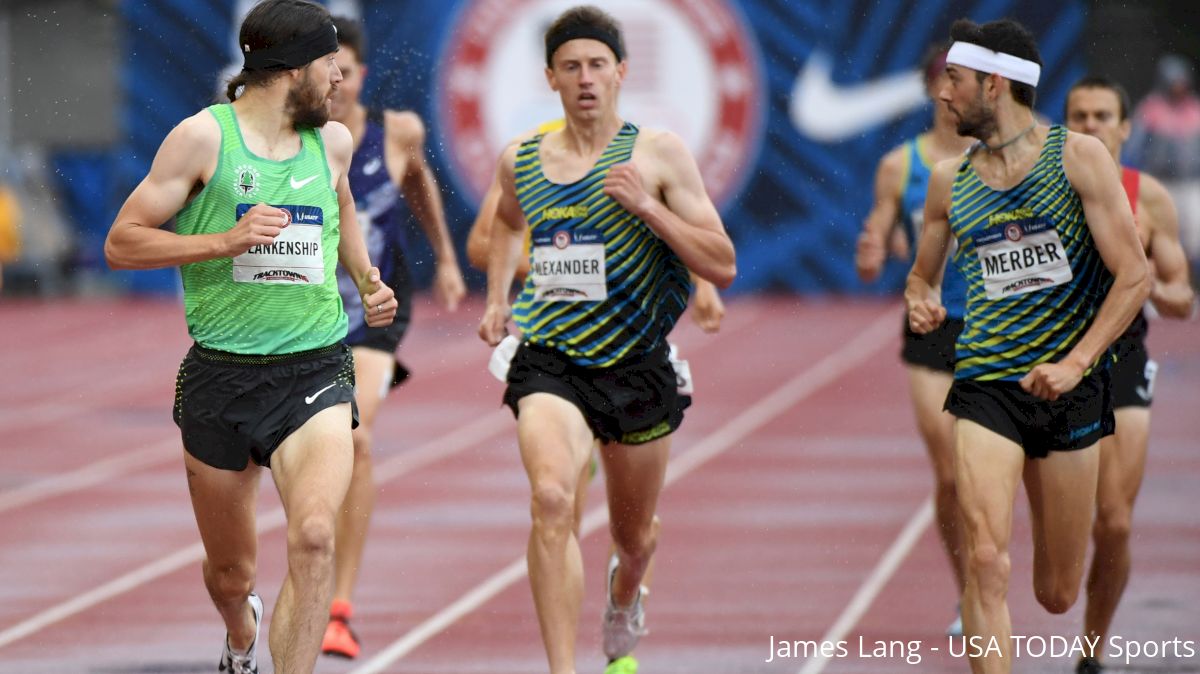The Men's 1500m Semis Are Lopsided For A Very Dumb Reason
The Men's 1500m Semis Are Lopsided For A Very Dumb Reason
By Dennis Young and Gordon MackLate last night and early this morning, reasonable people including but not limited to our co-workers noticed the men's 1500

By Dennis Young and Gordon Mack
Late last night and early this morning, reasonable people including but not limited to our co-workers noticed the men's 1500m semifinals were extremely lopsided.
Look at those heats! In the first one, there are only five sponsored athletes and one man with the Olympic standard. In the second one, there are 11 full-fledged professionals, four men with the Olympic standard, and two global medalists.
Why is that? I don't want USATF to employ any discretion in anything at all, and they often don't either, so I assumed it was an unfortunate fluke of snake seeding. But if you use straight snake seeding based on prelim times, you get very different heats. This is what the semifinals would look like if they were just seeded on prelim times, with Olympic standard-holders bolded:
That's a little less sloppy! There are three men with the standard in the first and two with the standard in the second. But as USATF explained on Twitter, they didn't seed the semifinals based on prelim times. They seeded them based on 2016 bests:
That's in line with the USATF competition rules, which read: "In rounds other than first: For all other events, seeding is from the list of competitors in the event, ranked by their original times used for seeding modified only by improvements achieved in previous rounds."
It's also a specific reading of 2016 bests. If you used 2016 season bests that included converted mile times, Andrews and Manzano would have been moved to the first heat.
It's important to not harp on a process just because it had an unpleasant outcome one time. This process was used for the 1500m and both 800s, and there were no major issues. And if you can't finish top five in a domestic semifinal, you probably weren't headed to the Olympics anyway. But seeding a second round based on season bests after running a prelim seems objectively dumb.
Late last night and early this morning, reasonable people including but not limited to our co-workers noticed the men's 1500m semifinals were extremely lopsided.
M1500, 12 to final: top 5 auto + next 2 fastest. So how were heats drawn? Seems A BIT lopsided @usatf #TrackTown16 pic.twitter.com/wMkrXJ2hxx
— Ryan Fenton (@ryanmfenton) July 8, 2016
Look at those heats! In the first one, there are only five sponsored athletes and one man with the Olympic standard. In the second one, there are 11 full-fledged professionals, four men with the Olympic standard, and two global medalists.
Why is that? I don't want USATF to employ any discretion in anything at all, and they often don't either, so I assumed it was an unfortunate fluke of snake seeding. But if you use straight snake seeding based on prelim times, you get very different heats. This is what the semifinals would look like if they were just seeded on prelim times, with Olympic standard-holders bolded:
| A | B |
|---|---|
| Engels | Alexander |
| Winn | Crawford |
| Merber | Creese |
| Awad | Prakel |
| Hudgins | Yorks |
| Presson | Saarel |
| Manzano | Phillips |
| Wheating | Avila |
| Andrews | Blankenship |
| Maton | Centrowitz |
| Gregorek | McNamara |
| Legesse | Ulrey |
| Solis |
Seeded based on their original seed times (2016 times) or prelim times, whichever is faster.
— USATF (@usatf) July 8, 2016
That's in line with the USATF competition rules, which read: "In rounds other than first: For all other events, seeding is from the list of competitors in the event, ranked by their original times used for seeding modified only by improvements achieved in previous rounds."
It's also a specific reading of 2016 bests. If you used 2016 season bests that included converted mile times, Andrews and Manzano would have been moved to the first heat.
It's important to not harp on a process just because it had an unpleasant outcome one time. This process was used for the 1500m and both 800s, and there were no major issues. And if you can't finish top five in a domestic semifinal, you probably weren't headed to the Olympics anyway. But seeding a second round based on season bests after running a prelim seems objectively dumb.